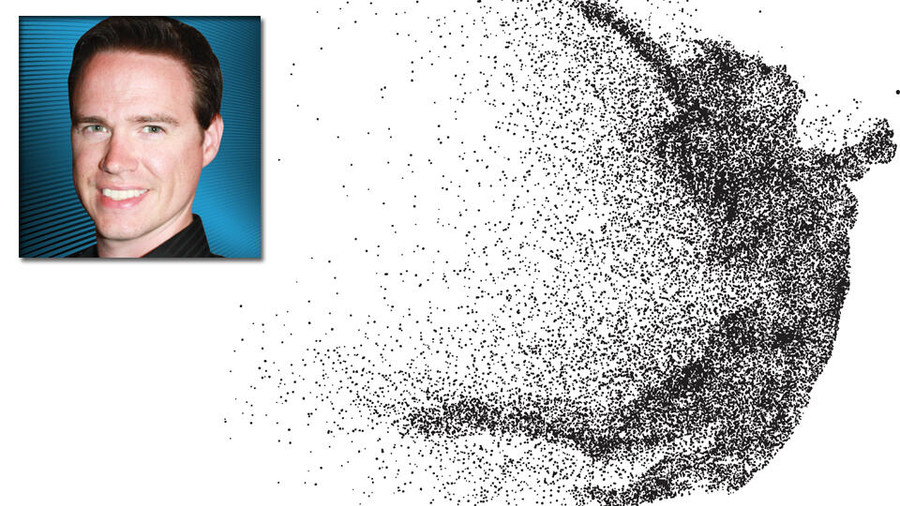Change begets change. Nothing propagates so fast. If a man habituated to a narrow circle of cares and pleasures, out of which he seldom travels, step beyond it, though for never so brief a space, his departure from the monotonous scene on which he has been an actor of importance would seem to be the signal for instant confusion. The mine which time has slowly dug beneath familiar objects is sprung in an instant; and what was rock before, becomes but sand and dust. — Charles Dickens
We have come a long way from the dawn of mobile, which now is the majority of traffic we sell at JuicyAds every day. I’ll concede that at the start I didn’t see the value in watching porn on a small screen, but mobile was never about the quality of the experience as much as it was about accessibility.
Adapting to change in the marketplace is pretty similar to adapting to change in life. The big life changes are sometimes pretty damn difficult.
Most of us are never a few steps away from our mobile phones, and this is why they are now the majority of the internet experiences. At one point, mobile redirects were the mobile gold rush of the adult industry.
Fortunes were made by advertisers who tapped the most lucrative portions of the traffic. Mobile redirects were once one of the most lucrative traffic types we sold here at JuicyAds, and we have decided to no longer sell them.
As the years went by the mobile carriers made changes and regulations changed in key countries (and this trend is going to continue and probably end poorly for the adult industry).
Combine that with a trend of people using Wi-Fi more. Where I live in Canada, the local mobile company has added Wi-Fi hotspots everywhere to supplement its carrier towers.
The biggest blow however, was Google’s decision to start penalizing publishers for “sneaky redirects” of their traffic. A side effect of mobile redirects was that the “mobile” version of a website simply did not match the “desktop” version seen by Googlebot.
This decision made little difference since most quality publishers had already either developed mobile versions of their websites, or integrated white labels matching their content and design. Either way, it was pretty much the kiss of death for redirects.
Today, most redirects do not come from quality websites. They come from media buyers, networks, or aggregators who want only one thing — to sell them to anyone who will take them. Don’t get me wrong, there’s obviously still some quality redirect traffic to be found.
My sources suggest that pure carrier traffic is still able to be redirected without penalty from Google — but redirecting Wi-Fi will rain fire and brimstone on your SEO keywords and results. For the most part, quality publishers have stopped selling redirects.
Adapting to change in the marketplace is pretty similar to adapting to change in life. The big life changes are sometimes pretty damn difficult.
It’s no secret that my divorce was pretty rough — just go back and read my first year of columns here in XBIZ World. You’ll see the progression of change happen — from breakup, to dating, to meeting “the one” and living in Las Vegas, and then getting married and starting a family. This all within four years, demonstrating that change truly waits for no one.
These are all huge life changes, and like business — even the worst change will often lead to positive things if you let it and if you accept that change is happening whether you like it or not. People are often afraid of change yet excited by it.
Embracing change for JuicyAds instead of balking at it meant a sharp decision based on a new strategy to move forward. We decided to focus on a solution not limited to just redirects.
After several years of planning, a few months ago we suddenly stopped selling mobile redirects to our clients even though it was a very popular traffic type for both our publishers and advertisers. They are still available to clients with existing campaigns, or by special request but they’ve been killed off.
Why did we stop selling the traffic type that was once one of the most profitable? Why would any advertising network opt to refuse traffic when it can be sold to someone? Because things have changed and mobile redirects no longer meet the JuicyAds quality standards — even though it means lost revenue.
Just because there’s money to be made doesn’t mean it’s the right thing for a company to do. Take for example all the money to be made in malware and tech support scams. These types of campaigns run rampant across some other ad providers, and even some highly promoted and seemingly reputable brands.
They are offered as “opt-in” because they are terrible, but some people just can’t say no to making more money. Clearly, some companies care more about money than integrity. Such is the lure of the dark side. To each their own, I suppose.
We spent several years developing our mobile revenue engine called LiquidFire.mobi to replace the buying and selling of mobile redirects between advertisers and publishers.
The solution is now in Phase 1 beta with the full rollout in the coming months. LiquidFire focuses on performance and results for advertisers, and paying publishers well while monetizing all the traffic they send at highest rate possible.
It’s a win for both sides alike who want great earnings — and it works with all types of traffic including banners, pops, or (gasp) redirects. Looking at the bigger picture allowed us to take a problem and solve it with something better.
Juicy Jay is the CEO and founder of JuicyAds, the Sexy Advertising Network. You can follow Jay on Twitter @juicyads, visit JuicyAds.com, or like on Facebook.com/juicyads.







